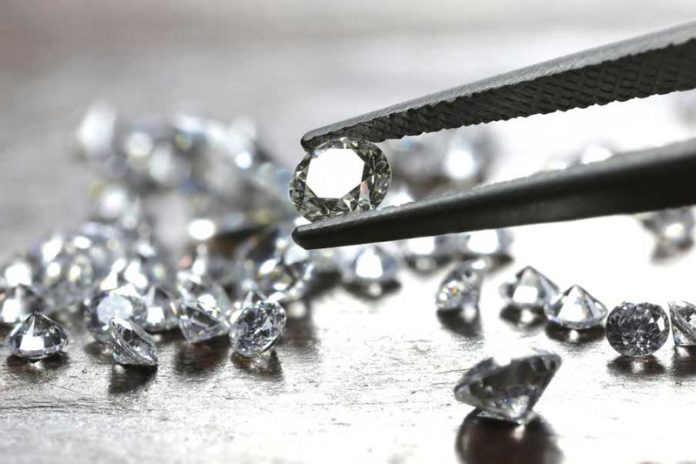If you read the headlines these days, you might think electric car sales have gone over a cliff, as customers pile into conventional hybrids similar to the Toyota Prius that has been around now in one form or another for almost 30 years. Especially in the United States, where everything from how to cook hamburgers to the sex life of singers has become a cultural battleground, the mainstream press is awash with headlines declaring the EV revolution over and done with. The truth, however, is rather more nuanced.
Audi says its electric car sales for the Q8 have cratered while BMW is crowing about its recent electric car sales success. Such divergence is perplexing, since both companies cater to basically the same clientele — wealthy drivers who expect to be pampered in every respect. In a press release dated July 9, 2024, Audi said it is witnessing a global decline in customer orders in the electric luxury class segment.

The decline affects the Q8 e-tron and Q8 Sportback e-tron electric car models produced in Brussels. The company is therefore considering the early end of production at that factory and the Board of Management of Audi Brussels has informed the Company Council of its intention to carry out a restructuring of that factory. The Q8 e-tron marked the start of electric mobility for Audi in 2018, the company says, and it ran very successfully worldwide for many years.
With the ramp-up of the new models based on the forthcoming Premium Platform Electric, the company is now seeing a drop in demand for the Q8 e-tron, and a sharp drop in incoming orders. There are structural challenges at the Brussels site. The factor layout is difficult to change due to its location close to the city center.
There are also high logistics costs. Overall, this leads to high production costs in Brussels compared to other sites. Following an intensive review of the market situation and the general conditions at the Brussels site, Audi is considering the early end of production of the Q8 e-tron model series.
So, perhaps it is not actually about a lack of demand for electric car models at Audi as it is that the factory chosen is obsolete and unable to produce cars in a way that is competitive with other manufacturers. (Shhh ..
...
don’t even think about dragging Chinese cars into this conversation.) If in fact the factory in Brussels, which has been producing automobiles since 1949, gets shuttered, it will be the first Volkswagen Group facility in Europe to ever suffer that fate. Closing the Belgium factory is “a possible indicator of upcoming restructuring actions across the European automotive industry in coming years,” Jefferies analyst Philippe Houchois said in a note to clients recently.
According to Bloomberg , top tier OEM suppliers such as Bosch, Continental, and ZF also are embarking on major cost cutting drives which have led to the dismissal of thousands of workers. Next year, more stringent emissions limits take effect in the EU. Patrick Hummel, a UBS analyst, wrote in a report Thursday that he estimates the company will need to increase battery-electric vehicle sales by about 50% from last year to next year.
“This could become costly in a market that shows little appetite for BEVs,” Hummel wrote, estimating that VW could take a €2 billion hit to earnings next year. In 2026, EU officials will review the feasibility of plans to effectively ban sales of combustion cars by the middle of the next decade. The roughly 3,000 workers at the Audi factory in Belgium will learn their fate soon, with a decision on the exact nature of the restructuring expected by the end of this year.
The outcome may boil down to simple mathematics, with autoworker labor rates in Belgium estimated to be about 2.8 times higher than those in Hungary, where BYD is setting up an electric car factory. The company confirmed this week it has also agreed to build a plant in Turkey, which similarly offers lower labor costs and has a trade agreement with the EU.
Gene Munster, a managing partner at Deepwater Asset Management, posted Wednesday on X that the potential closure of the Brussels factory shouldn’t be read as an indictment against electrification. “I see it as Volkswagen being selective around its EV investments. I still believe electrification is a better way to move given it’s more efficient than gas.
” The news about electric car sales is sunny at BMW . The Bavaria based company said in a press release on July 10, 2024, that in the first half of this year, it delivered 179,557 battery electric vehicles, a 34 percent increase over the same period last year. Overall, the BMW brand grew by +2.
3% compared to last year, with 1,096,486 units sold in the first half of the year. “In the first six months of the year, we saw double digit growth of our [electric car] sales from the upper premium segment,” said Jochen Goller, member of the Board responsible for Customer, Brands, Sales. “Despite a challenging market environment, we increased sales for the BMW brand in the first half of the year, thanks to our attractive product portfolio.
The strong commitment of our BMW Group employees and our robust global retail network have made a significant contribution in this regard,” he said. The discussion here is not so much about what is happening to electric car sales as it is how German brands are going to compete against global competitors, principally Chinese brands. If the cost of labor in Hungary is about a third of what it is in Belgium, that is clearly a long term problem.
At the moment, the Chinese companies are content to target the lower end of the market, but that won’t last forever. The bottom line is that the electric car revolution is going just fine — for Chinese manufacturers. Everyone else is still pretty much behind the eight ball and struggling to stay afloat.
There’s no doubt about it; interesting times for the auto industry lie ahead. CleanTechnica's Comment Policy LinkedIn WhatsApp Facebook X Email Mastodon Reddit.



















